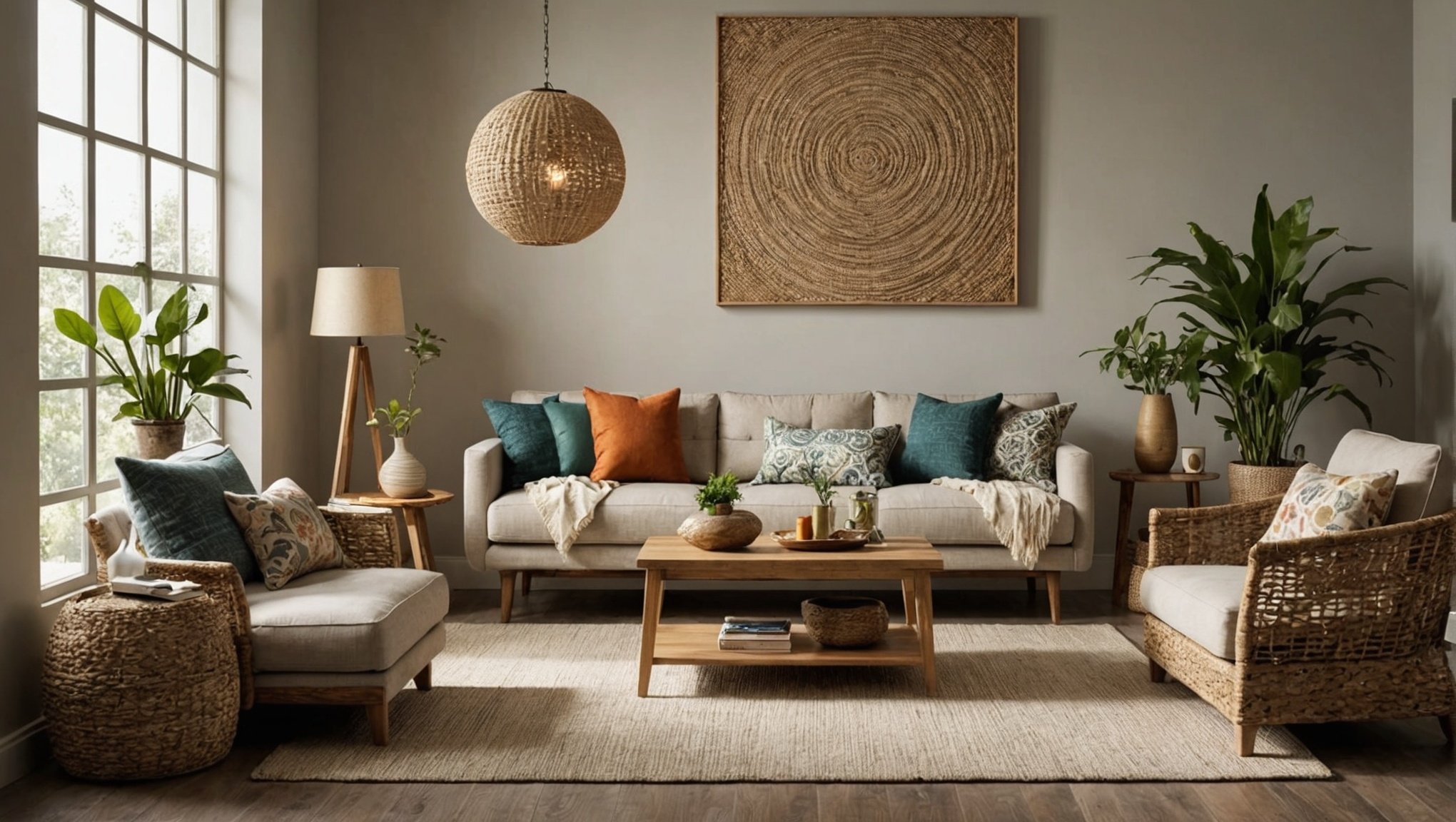Discover eco-friendly home decor and sustainable fashion from india

Embark on a journey to transform your living space and wardrobe with eco-friendly home decor and sustainable fashion from India. Discover handmade treasures crafted from recycled materials, zero waste living solutions, and top sustainable fashion brands employing fair trade practices. Explore how choosing these products supports local artisans and promotes ethical, environmentally-conscious living choices. Join us in redefining style with sustainability at its core.
Eco-friendly home decor from India
India offers a diverse array of eco-friendly home decor products that cater to various tastes and preferences. From intricately designed _handmade Indian decor* items to innovative pieces crafted from recycled materials, the options are plentiful. Popular items include upcycled furniture, organic cotton curtains, and biodegradable planters. These products not only enhance the aesthetic appeal of your home but also contribute to a greener planet.
Dans le meme genre : Unlock your reading adventure: translated chinese and korean novels
Handmade and recycled materials used
The use of handmade and recycled materials is a cornerstone of eco-friendly home decor in India. Artisans across the country employ traditional techniques to create unique pieces that are both beautiful and sustainable. Materials such as reclaimed wood, recycled metal, and upcycled textiles are commonly used. For instance, discarded fabrics are transformed into vibrant cushion covers, while old glass bottles are repurposed into elegant vases. This approach not only reduces waste but also supports local craftsmanship.
Zero waste and sustainable living ideas
Adopting a zero waste lifestyle is becoming increasingly popular in India, and home decor is no exception. Simple changes, like opting for reusable items and avoiding single-use plastics, can make a significant impact. Consider investing in multi-functional furniture made from sustainable resources or choosing decor items that serve dual purposes. Additionally, incorporating natural elements such as indoor plants can enhance your space while promoting a healthier living environment. These sustainable living ideas not only benefit the environment but also create a harmonious and aesthetically pleasing home.
Cela peut vous intéresser : Development and neighbourhood cooperation instrument
Sustainable Fashion Brands in India
India's fashion industry is witnessing a transformation with the rise of sustainable fashion brands that prioritize eco-friendly practices and ethical production. Brands like No Nasties and The Summer House lead the way with their commitment to fair trade, organic, and vegan clothing. Okhai empowers rural artisans by creating handcrafted clothing, while The Terra Tribe focuses on using locally manufactured Tencel and recycled metal trims.
Fair trade and ethical practices
Fair trade and ethical practices are at the heart of India's sustainable fashion movement. Brands such as Sui and Grassroot by Anita Dongre collaborate with NGOs and female artisans to produce clothing that supports traditional crafts and ensures fair wages. Oshadi employs a vertically integrated supply chain to maintain transparency and sustainability from farm to fabric.
Vegan and upcycled fashion options
The demand for vegan fashion is growing, with brands like A Big Indian Story offering accessories made from innovative plant-based materials like Piñatex and cactus leather. Doodlage excels in upcycled fashion by turning deadstock fabric into timeless patchwork pieces, reducing waste and promoting a circular economy. These brands not only cater to eco-conscious consumers but also set a benchmark for sustainable fashion in India. Read more
Impact of sustainable products on local communities
In India, the rise of eco-friendly home decor and sustainable fashion has had a profound impact on local communities, particularly artisans and craftsmen. By prioritizing ethically made furniture and decor, consumers are directly supporting the livelihoods of these skilled workers. Artisans use traditional techniques passed down through generations to create unique, handcrafted items that are both beautiful and sustainable. This not only preserves cultural heritage but also provides a stable income for many families.
Ethically made furniture and decor
The emphasis on ethically made furniture and decor ensures that the production processes are fair and environmentally responsible. Brands committed to sustainability often source materials locally and employ artisans under fair trade practices. For example, reclaimed wood and recycled metals are transformed into exquisite furniture pieces, reducing the need for new raw materials and minimizing environmental impact. This approach supports a circular economy, where waste is minimized, and resources are reused.
Use of natural dyes and eco-centric designs
The integration of natural dyes in sustainable fashion and home decor is another significant trend. Natural dyes derived from plants, minerals, and other organic sources are non-toxic and biodegradable, making them a safer alternative to synthetic dyes. This practice not only reduces environmental pollution but also ensures that the end products are safe for consumers. Additionally, eco-centric designs focus on minimalism and functionality, promoting a lifestyle that values quality over quantity and sustainability over short-term trends.
In summary, the shift towards sustainable products in India is fostering a positive impact on local communities by supporting artisans, ensuring ethical production practices, and promoting the use of natural and eco-friendly materials.
